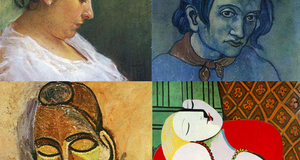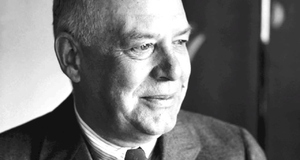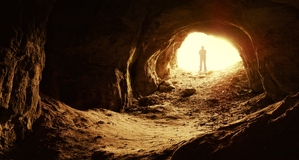How Everything Fits Together: On Knowledge and Ancient Understanding
By
2012, Vol. 4 No. 10 | pg. 1/2 | »
KEYWORDS:
As humans, we are compelled to ask the questions, why do we exist? How do we exist? Even, how can I know that I am using this existence in the correct way and with the right intentions? Even the earliest of the ancient philosophers pondered these questions, constructing heavily detailed and logically sound theories of being. Looking back at these theories it is possible to see many connections and overlapping ideas between these great thinkers. At one end of the spectrum, philosophers preach the importance of observation in understanding existence, at the other end, sensory experience is the thing we must overcome before understanding can begin. Numerous beliefs on how to overcome sensory experiences exist: meditation, logic, introspection, and death are among the most popular paths to true knowledge. This essay will briefly incorporate a network of ancient philosophy and attempt to influence the belief that the Universe is beyond human understanding and is in fact, Everything All at Once. Near the beginning, Thales constructed the idea that to gain knowledge and find the truth one must study things governed by natural principle, for nature has all the clues to a full understanding of the Universe. Therefore, the universe can be fully conceived by the human mind (Hergenhahn, 2009). If this is true, the most important thing every human should focus their attention on would be the interaction of plants, animals, the elements, and physics. Thales believed that there was one substance that was the root of all things (the Greeks referred to such a thing as a physis).That is, all matter that exists is derived from one thing: water. The earth is made mostly of water, everything contains some water in some form, and everything needs water in order to survive. Heraclitus had a similar view for a much different reason. He believed fire to be the physis. He saw the world as ever changing much like a fire transforms fuel into heat, color, and smoke (Hergenhahn, 2009). Since everything was in constant motion, nothing could truly be understood for certain. This is the basis to his famous statement: “It is impossible to step into the same river twice” (Hergenhahn, 2009). This ideology brought into question the reliability of the senses in a path to knowledge. How could one know something when that thing changes the moment after? Less than a century after Heracitus, a man was born who seemed to have the answer to this inquiry. Parmenides, born in 515 B.C., preached the idea that change is an illusion; true reality is finite and motionless. Knowledge, for Parmenides, could be obtained only through reason and logic. Under this philosophy if something can be thought of, it must exist at all times. Therefore, change is impossible because it requires all things to come into being and cease to be (Hergenhahn, 2009). Soon after Parmenides’ view became known, the Pluralists constructed a view that embraced the belief against generation and destruction while allowing change and motion. Empedocles, Anaxagoras, Leucippus, and Democritus each created a different theory that viewed all things in the universe as constructions made up from a combination of everything else (Reeve & Miller, 2006). Each had differing ideas for a physis, however, each physis produced alterations within and between objects. Empedocles created the idea that water, air, earth, and fire (the four “roots”) were in a constant state of flux that was governed by love and strife. Love attracts the roots while strife forces them apart. Through a four phase process, the four elements mix together and tear apart only to be mixed again in a different way. Only when love and strife are fighting against one another can humans perceive existence (Hergenhahn, 2009). While Empedocles believed these four things mixed to create existence, Democritus and Leucippus theorized that everything was made from atoms (atomon or atomos), meaning “invisible” or “un-cuttable.” Atoms can be arranged in an infinite amount of ways, which allows for an infinite amount of objects. Anaxagoras had a similar view, however his physis’ were an infinite number of things which he called “seeds.” Every element or material that we know of can be considered a seed. All seeds are used, in different proportions, to make up everything in the world. One type of seed is always more present in an object than all the others, because of this we view an object as which ever seed is more prevalent in said object (Reeve & Miller, 2006). Air is air because the majority of it is made from “air seeds.” In this view, all things were once together as one except the mind. The mind, according to Anaxagoras, is not mixed with everything. Instead, mind is pure allowing it to know everything and govern everything (Reeve & Miller, 2006). Where there is mind, there is life. Where there is mind, there is Socrates. Socrates liked Anaxagoras’s view of a pure all encompassing mind but thought it could use a little work (Reeve & Miller, 2006). Socrates believed that answers to life and death could be found through reasoning and introspection. When Socrates said, “know thyself” he was not referring to knowing what you are made of, he was referring to the properties of the soul. He taught the importance of introspection and reasoning in gaining knowledge. The most important thing one can do in life is to try and gain knowledge. This is true, searching for the reason things exists is something that every human should take interest in. Socrates has a famous saying, “An unexamined life is not worth living,” which means that a life is unfulfilled if it was not used to seek knowledge. Sadly however, humans do not possess the ability to understand true reality. Only upon death is a person able to bask in pure and infinite knowledge. The best knowing that can be obtained is a weak idea of actual existence. To truly know something is to know its essence, according to Socrates. By his definition, the essence of a thing (i.e. love) was a fully accurate and all encompassing definition of that thing. Of course, this is a very hard thing to come by. Even to this day we are unable to agree on a definition of love, everyone has their own example of love, some which contradict others. Therefore, the essence of something is impossible to truly comprehend. Only when our souls become one with pure knowledge will we have the ability to truly understand things such as love, beauty, or piety. All things have an essence, even humans. This essence is neither good nor bad, it just is. The essence of a person then is not only his/her origin and character traits, it is what caused them to exist. One can see how things start to connect with this view on reality. The essence of a thing has a meaning so deep that it provides this thing with a direct connection with the Universe, or pure knowledge, as Socrates would say. Because all things have an essence and this essence is connected to everything else, it is easy to imagine how everything fits together as one in true existence. Not as separate things like humans commonly believe. The Eleatic and Pluralist view against creation and destruction is true in this sense, for everything is happening all at once. Time is an illusion, as is space. For everything to exist in harmony it must not have started, it must consist of everything, it must not have size, and it will never end: it just IS. There are many popular views in the history of philosophy and in religion that believe in an afterlife. However, afterlife is not really the correct term and many of them are biased toward good and evil. In actuality this “afterlife” is neither good nor bad. Heraclitus had it right with his belief that polar opposites must exist together, you cannot have one without the other. In “The Book” by Alan Watts (1966), the reality of opposites is well portrayed. You “cannot have mountains without valleys” you “cannot have light without dark” and you certainly cannot have good without evil. These things are inseparable and equal. As stated before, humans are incapable of knowing the truth because we are bound by our senses. With this realization we must also realize that the idea of good and evil is something that we have constructed because it influences our senses in a certain way. We fail to recognize that these are aspects of the same thing, existence. When one is freed of the restrictions brought by his senses he will no longer be a person, instead he will be united with the essence of himself.Continued on Next Page » Suggested Reading from Inquiries Journal
Inquiries Journal provides undergraduate and graduate students around the world a platform for the wide dissemination of academic work over a range of core disciplines. Representing the work of students from hundreds of institutions around the globe, Inquiries Journal's large database of academic articles is completely free. Learn more | Blog | Submit Latest in Philosophy |


















